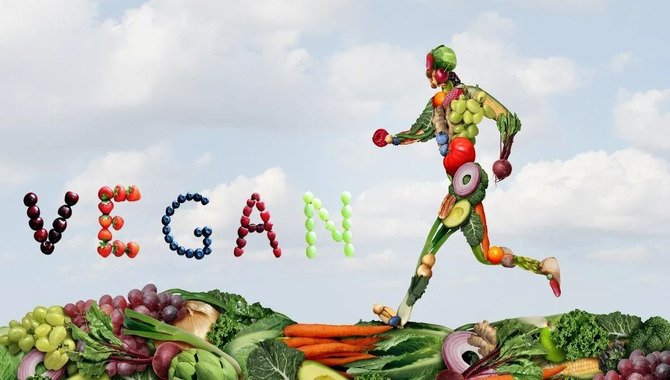One of the most discussed and debated issues today is the effect of veganism and other types of diet on the environment. Many people consider veganism a way to reduce their carbon footprint and help protect the environment, but others are sceptical about its impact.
It all depends on how you eat and what resources you use when making food choices. Choose to buy non-organic produce or products made with non-renewable resources. Your impact on the environment will be more significant than if you stick to organic options or use renewable resources such as locally grown vegetables.
We’ll discuss understanding the impact of veganism and sustainability and how it can help reduce environmental and animal harm. We’ll explore the benefits of veganism and discuss some of how it can be implemented into your everyday life.

Contents
- 1 Understanding The Impact Of Veganism And Sustainability – In Details
- 1.1 Why Is Veganism Important For Sustainability?
- 1.2 The Environmental Benefits Of Veganism
- 1.3 How To Make The Transition To A Sustainable And Vegan Lifestyle
- 1.4 How Can Veganism Be Made More Sustainable?
- 1.5 What does being vegan do for the environment?
- 1.6 Adverse Effects of Veganism on the Environment
Understanding The Impact Of Veganism And Sustainability – In Details

Veganism and sustainability have become increasingly important topics in recent years as more people become aware of their diet and lifestyle choices’ environmental impact. Veganism is a lifestyle choice that involves abstaining from all animal products, while sustainability focuses on reducing waste and preserving natural resources for future generations.
By adopting a vegan lifestyle and practising sustainable habits, individuals can reduce their carbon footprint and help to create a more sustainable future. This can include choosing plant-based foods, reducing single-use plastics, using renewable energy sources, and supporting ethical and sustainable businesses.
By understanding the impact of veganism and sustainability in detail, individuals can make informed decisions that benefit themselves and the planet. Veganism and sustainability are intertwined topics as both aim to reduce the harmful impact on our environment. Veganism promotes a plant-based diet that is good for our health and reduces greenhouse gas emissions, deforestation and water pollution caused by animal agriculture.
Sustainability aims to preserve natural resources and create a balanced ecosystem for future generations by adopting sustainable habits such as reducing waste, using eco-friendly products, conserving energy and supporting local businesses. By making these conscious choices, we can collectively create a more sustainable future for ourselves and the planet.
Why Is Veganism Important For Sustainability?

Sustainability is a complex concept that involves many factors, including resource use and conservation, human health, and social equity. One of the most critical aspects of sustainability is the ability to meet human needs for food, water, energy, and other essentials for survival. This can be achieved sustainably using resources that do not deplete them excessively or impact their quality or availability.
One of the significant impacts of modern agriculture on the environment is its use of resources such as land, water, and energy. These resources are often used inefficiently or negatively impact their quality or availability. Plant-based diets have many environmental benefits due to their lower environmental impact.
A plant-based diet can help reduce the land used for livestock production through reduced pasture and feed needs. It also has less impact on water resources since most of it is produced by crops rather than animals consumed as food. Plant-based diets also have fewer air emissions from animal production operations than conventional ones due to reduced methane emissions from animals in confined areas such as feedlots and manure lagoons. Reducing these emissions helps protect against climate change by reducing global warming potential (GWP).
Sustaining a healthy planet means caring for all aspects of our environment, including those vital to human life, like clean air and water. By choosing a plant-based diet over one that relies on animal products, you are trying to sustain our planet’s health and well-being into the future.
The Environmental Benefits Of Veganism

One of the significant benefits of veganism is its positive impact on the environment. Animal agriculture significantly contributes to greenhouse gas emissions, deforestation, water pollution, and land degradation. Individuals can decrease their carbon footprint and reduce their impact on the earth by choosing a plant-based diet.
A vegan diet also requires less land, water, and other resources than animal agriculture, making it a more sustainable option for feeding our growing population. However, Numerous environmental benefits come with a vegan diet. One of the most significant benefits is reducing animal-based food production and consumption, which can positively impact the environment due to reduced methane and carbon dioxide emissions.
- Veganism is a diet that excludes animal-based products such as dairy, eggs and dairy-based products such as milk and cheese. It encompasses many practices, from wholly vegan diets to vegan diets with small amounts of animal-based products.
- Eating a plant-based diet can have a positive impact on the environment and also on personal health. Research suggests that vegan diets are more environmentally friendly than typical Western diets, as they reduce greenhouse gas emissions and consumption of water-guzzling foods.
- Vegan diets also promote sustainability by reducing environmental pollution caused by livestock farming. This includes emissions from manure production and land use and environmental pollution caused by greenhouse gas emissions from livestock farming.
- A vegan diet can reduce the environmental harm caused by animal products in water sources. By avoiding these foods, vegans can help to preserve the marine ecosystem.
- There are many benefits of veganism for the environment and personal health. Research has shown that vegan diets can be healthy and sustainable alternatives to traditional Western diets. Not only does veganism protect the environment, but it also promotes environmental sustainability.
How To Make The Transition To A Sustainable And Vegan Lifestyle

Transitioning to a sustainable and vegan lifestyle can be challenging but rewarding for many reasons. First, you will likely have a heightened awareness of your choices’ impact on the world around you. You’ll also want to consider your diet’s ethical and environmental effects.
Another critical factor to consider is your physical health. Suppose you are transitioning to a vegan or sustainable diet to address or prevent a chronic ailment like heart disease or cancer. In that case, you must research and consult with a professional before making any drastic dietary changes. Finally, ensure you have support and resources to help you through this journey.
Considering these considerations, transitioning to a sustainable and vegan lifestyle becomes even more critical. You can make it happen by taking one step at a time and being patient with yourself. Remember that there is no set way to be vegan or be healthy, so use these tips as an example of how you can make the transition to a sustainable and vegan lifestyle work for you!
How Can Veganism Be Made More Sustainable?

One way to make veganism more sustainable is by choosing foods that are less resource-intensive to produce, such as fruits and vegetables. Another way is to choose products made with renewable resources, such as non-toxic paint and clothing made from organic materials.
Another way to make veganism more sustainable is by choosing foods that are less resource-intensive to produce, such as fruits and vegetables. By choosing these foods, you can reduce the land, water, and energy needed to make them.
Another way to make veganism more sustainable is by choosing products made with renewable resources. These resources will not be depleted as quickly and can be used again. Choosing products made with these resources will help ensure the long-term availability of those resources for future generations.
What does being vegan do for the environment?

One of the critical benefits of veganism for the environment is reducing greenhouse gas emissions. Animal agriculture significantly contributes to greenhouse gas emissions, with some estimates suggesting that it accounts for up to 18% of global emissions.
By eliminating animal products from their diet, vegans can significantly reduce their carbon footprint and help mitigate the impacts of climate change. Veganism also helps conserve natural resources such as water and land.
Animal agriculture requires large amounts of water and land, which can lead to deforestation and soil degradation. Vegans can help preserve these vital resources by choosing plant-based foods for future generations. Overall, adopting a vegan lifestyle can have a significant positive impact on the environment and contribute to a more sustainable future.
Adverse Effects of Veganism on the Environment
While veganism is often touted as a more sustainable and environmentally-friendly lifestyle, there are also some adverse effects of veganism on the environment to consider. One of the main concerns is the reliance on monoculture crops. Such as soy and corn, which can lead to soil degradation and increased use of pesticides.
Additionally, the transportation of vegan products worldwide can contribute to greenhouse gas emissions and air pollution. Vegans must be aware of these potential negative impacts and make conscious choices to minimize their environmental footprint. This could include choosing locally-sourced produce and reducing reliance on processed vegan products that require extensive transportation. By making informed choices, vegans can work towards a more sustainable future for all.
Conclusion
Veganism is growing in popularity across the world, and for a good reason. From environmental sustainability to animal rights, veganism is a win-win for everyone. It can be challenging to change your diet, but with vegan food options available at most supermarkets. And restaurants, it is easier than ever to adopt plant-based eating if that is what works best for you.
Besides, plenty of resources online can help you transition to a vegan lifestyle. Veganism and sustainability are two critical issues that share a lot of common ground. By understanding the links between these two topics, we can better appreciate veganism’s importance and the benefits of sustainability. This understanding can help us make more informed decisions about our knowledge of The Impact Of Veganism And Sustainability lifestyles.
Frequently Asked Questions:
1. How Does Veganism Help The Environment?
Ans. Veganism has been found to have a significant positive impact on the environment. By avoiding animal products, vegans reduce their carbon footprint and contribute to the reduction of greenhouse gas emissions. The production of animal products requires large amounts of water, land, and energy inputs, which lead to deforestation, soil erosion, and biodiversity loss.
2. Why Is A Vegan Diet Better For The Planet?
Ans. There are several reasons why a vegan diet is better for the planet. For one, it reduces greenhouse gas emissions by up to 70%. Plant-based proteins have a much lower carbon footprint than animal-based proteins. One hundred grams of protein from peas emit 0.4 kilograms of carbon dioxide equivalents while almost 90 times as much from 100 grams of beef.
3. What Are The Benefits Of Veganism, And Why Is It Important To Be A Vegan?
Ans. There are many benefits to veganism, the most important of which is that it reduces the environmental footprint of a diet. Farmed animal production is one of the leading contributors to pollution, greenhouse gas emissions and deforestation, and vegan diets have been shown to have a more minor impact on the environment than diets rich in animal proteins.
4. What Is The Best Kind Of Food To Eat If You Want To Become More Sustainable?
Ans. Plant-based food is the best food to eat to become more sustainable. Eating a diet rich in fruits, vegetables, whole grains, and legumes has been shown to have a lower environmental impact than diets high in meat and dairy products. Plant-based diets can help reduce greenhouse gas emissions, conserve water resources, and minimize land use.
5. Is It Possible To Go Fully Vegan And Still Consume Some Animal Products?
Ans. Yes, adopting a vegan diet and still consuming animal products is possible. This means you reduce your environmental impact by partially adopting a vegan diet. Plant-based proteins have the lowest carbon footprint compared to animal-sourced proteins. Eating a plant-based diet can positively affect the environment and your health. Animal-sourced proteins can be replaced with other sustainable sources, such as cultured meat. Alternatives such as entomophagy may also be considered part of a sustainable vegan diet.
Leave a Reply